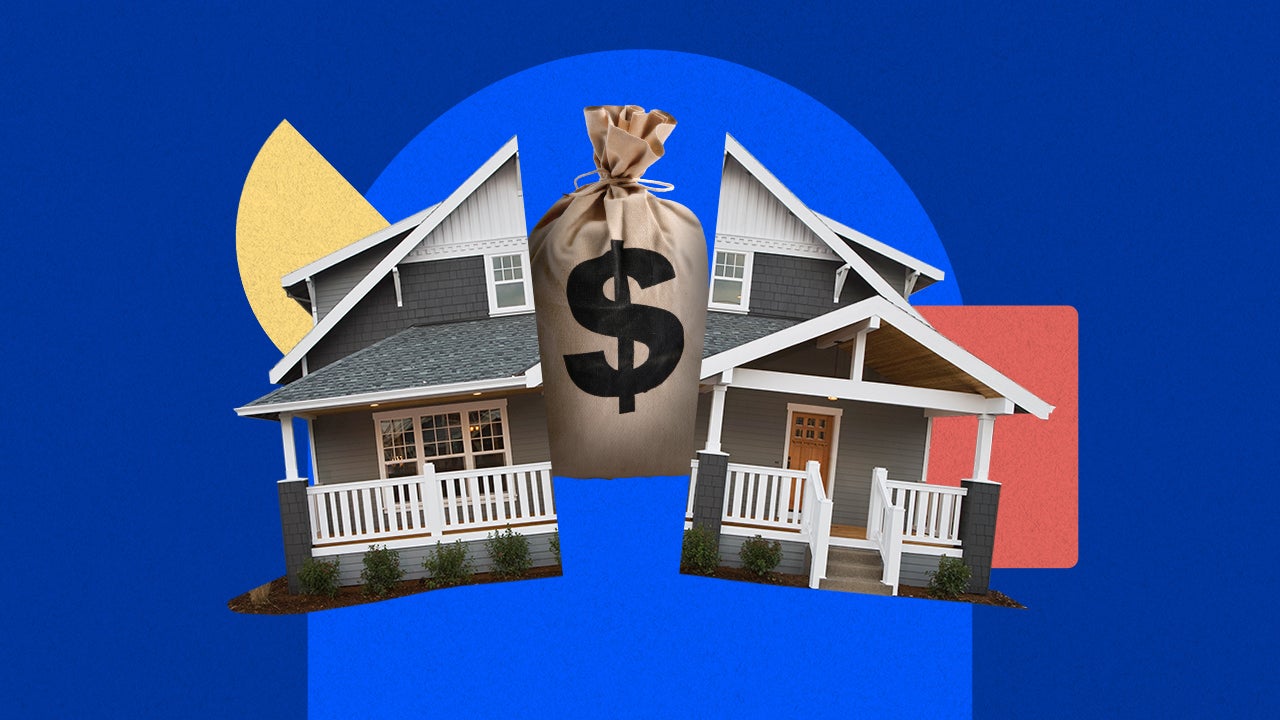Is it a good time to buy a house?

After an intense few years in the housing market characterized by bidding wars and sky-high prices, dynamics have gradually begun to change. Mortgage interest rates remain stubbornly high, and as a result, more than a few potential buyers have been sidelined. That reduced demand, in turn, causes prices to decline.
So what does all this mean for still-hopeful homebuyers? Is now a good time to buy a house? Let’s explore.
Is it a good time to buy a house?
Buying a home is a big investment and an extremely personal decision. In general, the time when it makes the most sense to take the plunge is whenever you’re financially prepared to do so. Simply wanting a house isn’t necessarily the best reason to buy one.
Some questions to consider include: Is your credit score in good shape? Do you have a healthy down payment fund, as well as a savings cushion for possible emergencies? How about a stable lifestyle and job security? If you answered yes for all those items, then buying a home may be the right move right now.
For at least some Americans however, the outlook is uncertain. March’s Fannie Mae Home Purchase Sentiment Index revealed that 21 percent of consumers surveyed were concerned about losing their job in the next 12 months. An overwhelming 79 percent felt that now is a bad time to buy a home.
The current inflation environment is also an important consideration. While having a fixed monthly mortgage offers some degree of protection against the rising cost of living, there are still other homeownership expenses to be mindful of in the current economy. “Many of the ongoing costs of homeownership are still subject to inflationary pressures: maintenance, repairs, upgrades, property taxes and insurance to name a few,” says Greg McBride, CFA, Bankrate’s chief financial analyst.
Housing supply and inventory
Even with the market cooling and home prices declining, don’t automatically expect to get a bargain. Housing inventory continues to be quite limited, which keeps sellers in the driver’s seat — and prevents prices from falling too far. February data from the National Association of Realtors shows just a 2.6-month supply of existing homes for sale. Generally, a five- to six-month supply is required for a balanced market. Making matters more challenging, would-be sellers are not likely to list homes at a time when mortgage rates are 6 percent or more.
A lack of new-construction housing exacerbates the problem further, with market confidence among homebuilders low per the National Association of Home Builders/Wells Fargo Housing Market Index. And renters aren’t faring much better right now, as Zillow’s March 2023 Rental Market Report shows asking rents across the country averaging 6 percent higher than they were a year ago. The typical rent is currently just under $2,000, per the report, though rent prices can vary considerably from market to market.
Is it wise to buy right now?
Of course, there are pros and cons to purchasing a home in this uncertain economic climate. There are a lot of expenses associated with buying a home, including a hefty down payment, closing costs and more, and many people will not want to tie up their money with a possible recession looming. But if you have your reasons — such as a need to upsize, downsize or relocate for a job — then 2023 isn’t necessarily a bad time to be house-hunting.
This year is better than last year because the housing market has cooled.— Greg McBride, Bankrate Chief Financial Analyst
If your finances are in good shape, things may actually be looking better for homebuyers in 2023 than in the recent past. “This year is better than last year because the housing market has cooled, you’re not competing with lots of offers above asking price and you can take the time necessary to do proper due diligence,” says McBride.
But if you’re not as financially secure as you’d like to be — for example, if you’re in the process of paying off high-cost credit card debt or student loans, or if you could really benefit from a bit more time to build up your savings cushion and increase your credit score — then waiting until you’re on better financial footing may be a wiser strategy.
Next steps
Buying a home is one of the most significant financial transactions most people ever make. It’s a decision that requires a great deal of planning, no matter what the broader market environment is. Review your finances carefully and ensure you’re on solid ground. Check your credit score, review savings balances and debt accounts. It’s also important to consider your employment situation and long-term goals.
If you’re ready to become a homeowner, start by getting preapproved for a mortgage. This will help you wrap your head around what your budget should look like. Then, find a local real estate agent who can help you navigate the current real estate market in your area. Ask friends, relatives or coworkers for referrals, and be sure to check online reviews from previous customers for the agents you’re considering.
FAQs
-
Should you buy now or wait? The answer to this question depends on your personal finances and circumstances. If you’re not financially stable, or if you fear a recession might affect your job security, now is likely not the time for a significant purchase. However, if you have good credit and can afford a down payment and other costs, buying now means you can start building equity immediately and may even avoid future mortgage rate increases.
-
While spring is traditionally the best time to sell a house, the best time to buy tends to be during the colder months. A 2022 report from ATTOM Data Solutions shows that buyers who closed in October, as well as the winter months, scored the best deals.
-
That depends. Real estate does tend to appreciate in value over time, but it’s not a sure thing. If you’re financially stable and you’re reasonably certain you’re going to stay put for a while, then buying a home can be a good way to build wealth. But it’s not worth it if the purchase will make you house-poor or stretch you too thin to comfortably afford other essentials. Bankrate’s affordability calculator can help you figure out how much house you can afford.
Why we ask for feedback Your feedback helps us improve our content and services. It takes less than a minute to complete.
Your responses are anonymous and will only be used for improving our website.






